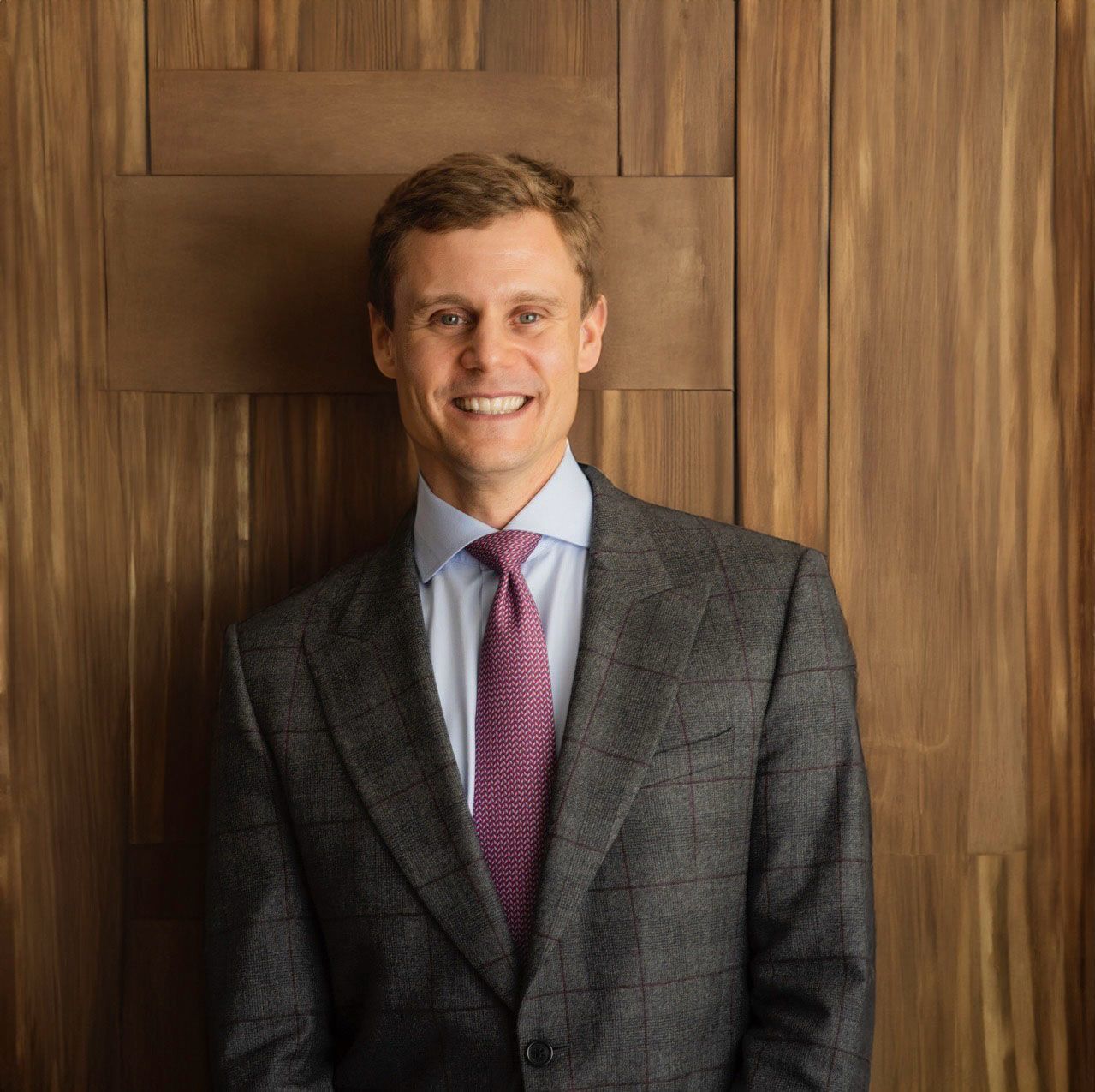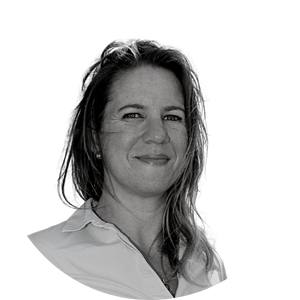 |
TRAINING - JANNES SÖRENSEN, FOUNDER OF KEPLER INTERNATIONAL HOSPITALITY ACADEMY : ”PREPARE THE LEADERS FOR WHAT'S COMING IN A CHANGING MARKET”
KIHA offers a new “transformational” training programme, spread across destinations that are exemplary in their speciality, for a positive impact hotel industry. The first intake of students will start on 7 October. |
Category: Worldwide - Industry economy
- Careers
- Interviews and portraits
- Career - Sustainability - Interviews
Interview made by Vanessa Guerrier-Buisine on Tuesday 30 July 2024
 Jannes Sörensen, founder of Kepler International Hospitality Academy
Photo credit © Kepler International Hospitality Academy
The Kepler International Hospitality Academy (KIHA) is the fruit of years of experience in the hotel industry and close observation of the expectations of a clientele that is increasingly aware of environmental and social issues.
KIHA aims to establish itself as a response to the industry's contemporary challenges, by offering innovative and specialized programmes based on a regenerative philosophy of hospitality and immersion in destinations that are pioneers in this approach. It is aimed at leaders who want to transform their vision of luxury by integrating sustainable practices and promoting a positive impact.
In this interview with Journal des Palaces, Jannes Sörensen shares the motivations behind the creation of the KIHA and the objectives he is pursuing with this avant-garde programme.
Journal des Palaces: Why did you create the Kepler International Hospitality Academy (KIHA)? What are the specific needs of the industry that you are seeking to address with this programme?
Jannes Sörensen: With the emergence of a post-material world, large new populations of eco-conscious Large new populations of eco-conscious luxury travellers and an affluent younger generation seek impact-positive or regenerative hospitality and tourism, in tune with the way they live, and shun the excesses of luxury hospitality. It became clear to me that luxury hotels often obstructed rather than enabled the way these clients wanted to live.
Luxury hospitality needs to come up with the solutions and not be part of the problem, and we want to contribute to these solutions to drive positive change.
We did not find any courses in the market that would train for all the skill sets required to implement the new hospitality models. Thus, we created Kepler International Hospitality Academy (KIHA) with the aim to develop the industry leaders needed to redefine and deliver this new form of luxury in hospitality and to elevate and re-educate the successful managers of today to be prepared to deal with changing circumstances and these new ecosystems.
KIHA is the result of a partnership between four personalities. Could you tell us about the complementarities between them?
KIHA four key partners each bring distinct qualities, experiences, and contributions to the Academy.
In our KIHA Senior Executive Development Programme, Philippe Krenzer is our lead on Deep Service Innovation, is our joint programme lead, co-facilitator and brings decades of expertise to his roles as Participant Mentor and Development Coach.
Jacob Mayne’s many years in senior roles in HR and change leadership experience are all drawn upon in his roles as joint programme lead, co-facilitator, Impact Integration lead, Participant Mentor and Development Coach to the KIHA Senior Executive Development Programme.
Joining us as Programme Director leading the Kyoto Module. Kenichrio Yokoyama has enjoyed a 37-year career in luxury hospitality. Best known as a missionary for authenticity in hospitality, Kenichiro has consistently championed a rare commitment to purpose, and is widely celebrated for his marriage of excellence, humility, precise attention to detail, and exceptional and meaningful leadership.
Finally, I have enjoyed a wonderful hospitality career. Itransformed The Beaumont in five years into an award-winning landmark destination by implementing many of the leadership lessons and management philosophies he had learnt along his luxury hospitality journey, and developing a unique, customer-centric, human-to-human culture that evolved into his concept of ‘the listening’ hotel. I bring lived experiences, a deep passion for new luxury hospitality models and a unique perspective, having developed The Beaumont into a luxury hotel based on real human values.
You mention that the industry “still operates on old models”. Could you detail the main changes you would like to see in the industry, and how the KIHA programme is preparing leaders to invent these new models?
The old model of luxury hospitality, which is all about reflecting success and consumerism at its most extravagant, is outdated and unsustainable. The old model promotes the wrong lifestyle, it encourages conspicuous consumption, it focuses on short-term financial success. We still find ourselves in this overly commercial mode of better, higher, faster, bigger, rarer and more exclusive. That is a problem in this world.
We need to change the idea of what success looks like and what luxury is. Clients are reinventing their lifestyles and luxury hospitality has not kept pace.
Yes, beautifully designed and operated hotels are still the basis of our business, but it is no longer enough. In this next phase, true luxury will need to be sustainable, about community, about lives well-lived, about experience and about belonging.
As an industry, we have to move from problem-creating to problem-solving and be a force for good.
Kepler International Hospitality Academy (KIHA) 5-Month Senior Executive Leadership Programme will equip senior professionals to design, deliver and manage new positive-impact hospitality and tourism models. This is not a course about teaching people ‘stuff’, it is a course that will prepare them for what’s coming in a changing market and open their eyes to the opportunities they have to drive positive impact and change.
Crucially, it reveals a world beyond hospitality because, although this course has been designed by and is taught by luxury hoteliers to luxury hoteliers, it is not limited by case studies of famous hotels or hoteliers. Instead, it takes the entire world as its library and inspiration and, by drawing parallels, brings issues and solutions back to the world of luxury hospitality.
You mention the ambition to “Reinvent luxury hospitality”. What areas do you include in this Hospitality?
When I talk about ‘luxury hospitality’, I am primarily talking about hotels, but it is equally applicable to many other sectors of the luxury services industry.
In your opinion, what are the most crucial leadership skills for luxury hotel managers today? How does the KIHA programme help to develop these skills?
Leaders will require acute awareness, rigorous discipline and a deep understanding of the essence of what they do, combined with business and leadership skills of the highest order. They need to have an open world-view and be motivated to discover the keys to the hospitality of the future.
Hospitality leaders will need to be facilitators, not operators. With an overload of information and data besieging us, it is the role of the leader to select what is important, determine what to focus on, to set the tone and to create the vision, all the while inspiring people to join them on the journey.
At Kepler International Hospitality Academy, we train today’s hospitality leaders quite differently. We expose them to the new business models required to address the world of today and tomorrow. We teach them to understand the connection between the choices they make in everyday life (their personal practices) and their professional performance as a leader.
We enable them to develop their own philosophy of hospitality, to explore how the evolving way of life and aspirations of today’s travellers, guests, and employees require a complete rethink of current approaches to service provision and to understand the connection between different business models and the realities of the impact of the sector upon nature and society.
We do this through individual coaching, setting personal learning and development objectives, purpose and road maps. And through facilitated group co-development sessions; mentoring; study group sessions; and feedback loops, as well as a change assignment in the workplace and ongoing membership of the Kepler Community of Practice, giving access to a global network of executives and peers.
The course is transformational. Participants will discover the person they want to become; they will be able to define what they want their legacy to be. They will learn not only about leadership of people but leadership of self and self-mastery.
How did you select the themes and destinations (Amsterdam, Kyoto, Freiburg, and Basel) for the KIHA programme? How do these locations and the topics they cover help redefine leadership in the luxury hotel industry?
The course is divided into 2 stages, with the first stage taking place in three distinct locations, enabling exposure to real examples of innovation, sustainability in practice and outstanding hospitality and service. Each location was chosen for the unique perspective it offers on new tourism models (Amsterdam), deep service practices (Kyoto), and sustainable systems with a focus on community management (Freiburg).
In recent years, Amsterdam has been at the forefront of tourism innovation as the city grapples with the negative impacts of over-tourism. It is the first major city to have developed a multi-stakeholder tourism strategy, “Tourism that works for everyone”. With its young and vibrant cohort of hospitality entrepreneurs, a number of concepts based on innovative business models have emerged in the city. A hub of impact businesses, Amsterdam was the first city to use the sustainability framework ‘Doughnut Economics’ as a platform for its development strategy. It is the perfect location for exploring today’s changing contexts, envision the future of the hospitality sector, and build a senior manager’s strategic toolbox for impact-based hospitality innovation.
Home to centuries-old family businesses known as ‘shinise’, Kyoto has gifted us the world’s oldest, most complete tradition of hospitality, known as ‘omotenashi’ (deep service). At the same time, Kyoto is way ahead of the curve on major societal issues such as shrinking and ageing population, over-tourism and difficulty in maintaining age-old traditions. It is the ideal place to learn the Japanese principles of deep service, but also the links between leadership and hospitality, how to adopt an adaptive leadership style, how to lead change in different environments and develop relevant HR offers in line with deep service principles.
In 1996, Freiburg Vauban became the very first district of a major city to aim for what is now called net-zero. A group of visionaries created Quartier Vauban, where community and sustainability went hand in hand to create a positive-impact living model. Life here is based on aligning individual choices with the collective interest. Quartier Vauban is active proof that living with a planet-positive footprint is possible. It is the most inspiring place to demonstrate new ways of living, positive impact business models and operations, as well as strategy implementation and leadership for positive impact.
Working closely with mentors, coaches and peer groups, students will scope a Change Assignment and develop a road map to put into practice the learnings from this first stage.
How is the programme structured in practice?
The course focuses on three distinct themes: deep service hospitality, positive impact business models, and self-mastery and capacity.
We build understanding by applying lessons from international case studies and beacon examples to participants’ own business challenges and projects in their individual workplaces. Each participant will be guided by a personal tutor or mentor, whose task is to ensure that all three streams of learning are integrated, and their interrelation is fully understood and internalised by the participant.
The final stage takes place in the workplace itself, with the student implementing a change assignment in practice. Recognising that many challenges arise when leading change, especially when it competes with the day-to-day exigencies of a demanding role, coaching and mentoring support continues to be provided throughout this stage to turn theory into daily practice.
Schools of hospitality management tend to emphasise technical and financial subjects at the expense of personal development, service and cultural aspects. Kepler’s intensive, experience-based approach to the development of senior hospitality managers is unique in the international business school world.
What are the criteria for selecting candidates, and what qualities are you looking for in the future leaders of the luxury hotel industry?
The KIHA 5-Month Senior Executive Leadership Programme is highly selective. Each cohort is limited to just 15 participants. The course is tailored to ambitious, successful senior executives in the premium echelons of the hospitality, tourism, or other services sectors, with over 10 years’ hospitality management experience.
Successful candidates will be looking for a constructive way to challenge their current hospitality model, expand their world view and enhance their leadership capabilities. They will be motivated to accelerate both their professional and their personal development as leaders.
A diverse participant mix is an important part of KIHA programmes. Each cohort will be made up of candidates who reflect a broad range of hospitality models, management functions, national cultures, and professional backgrounds to enrich the group’s learning experience.
What is the overall cost of training, and what does it include?
The participation fee, which covers all tuition, coaching, in-module breaks, local travel, one special dinner event per module and documentation, is GBP12,500 excl. sales tax.
Costs of travel to and from the host city (Amsterdam, Kyoto, and Basel/Freiburg), evening meals, breakfasts, and accommodation are not covered by the participation fee.
|
|







